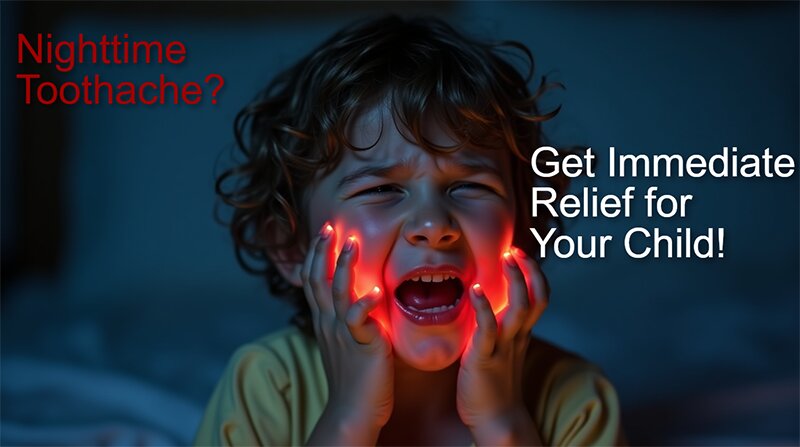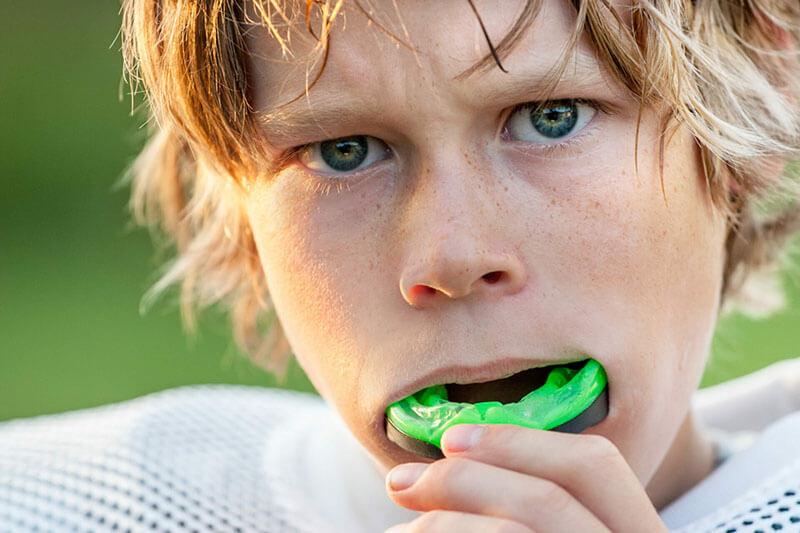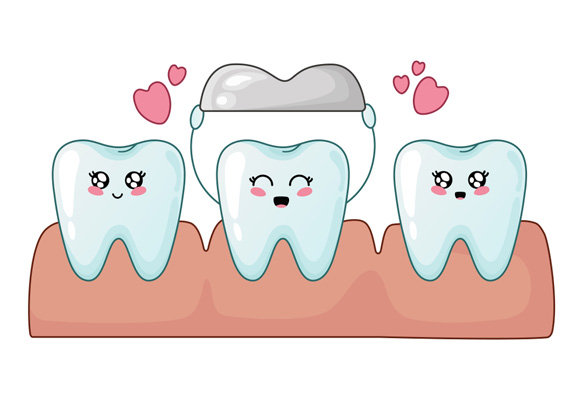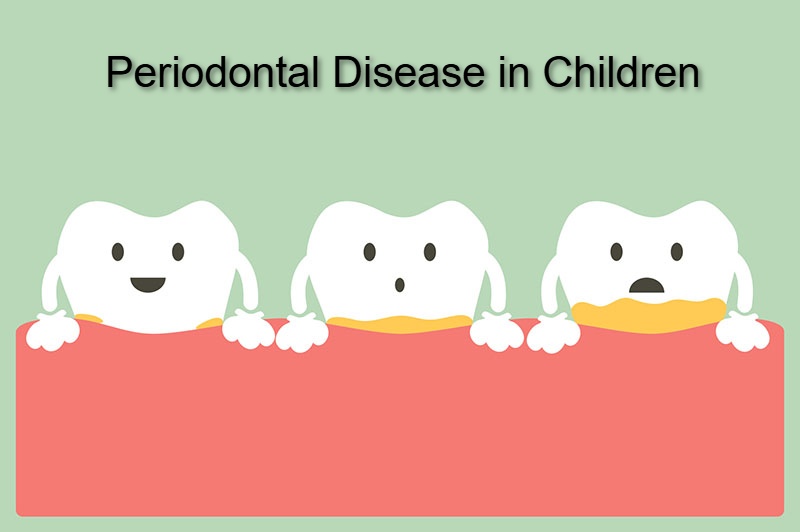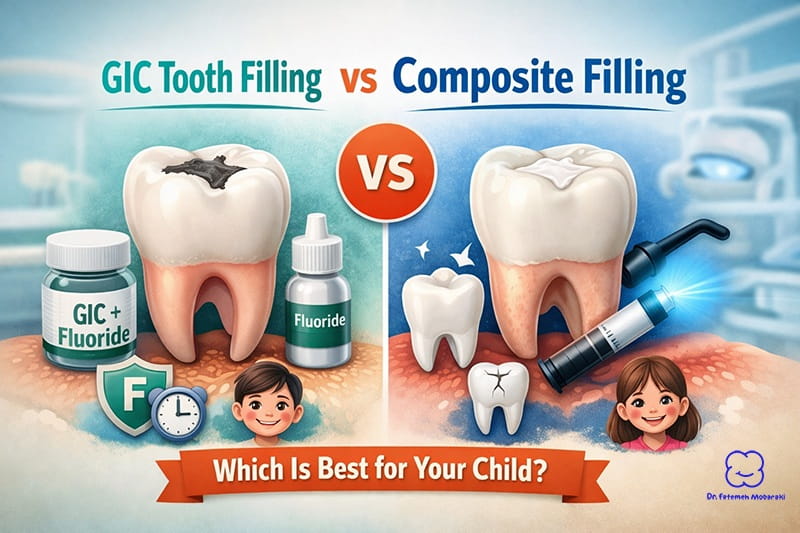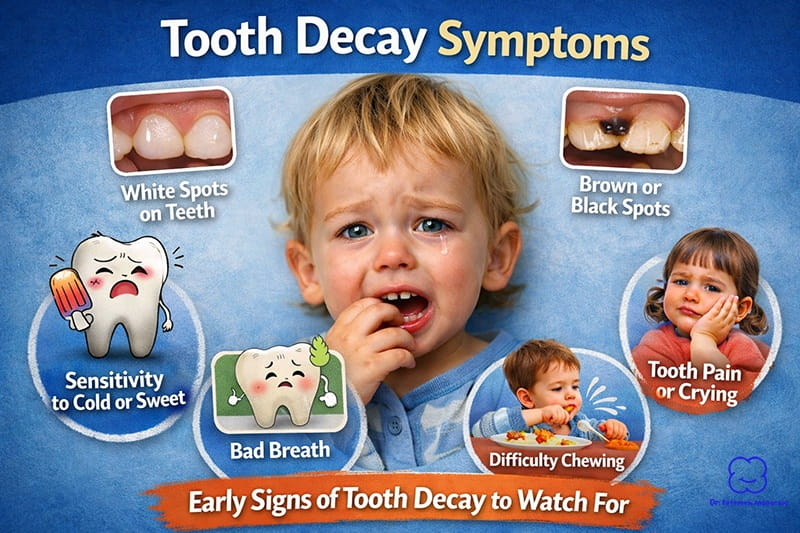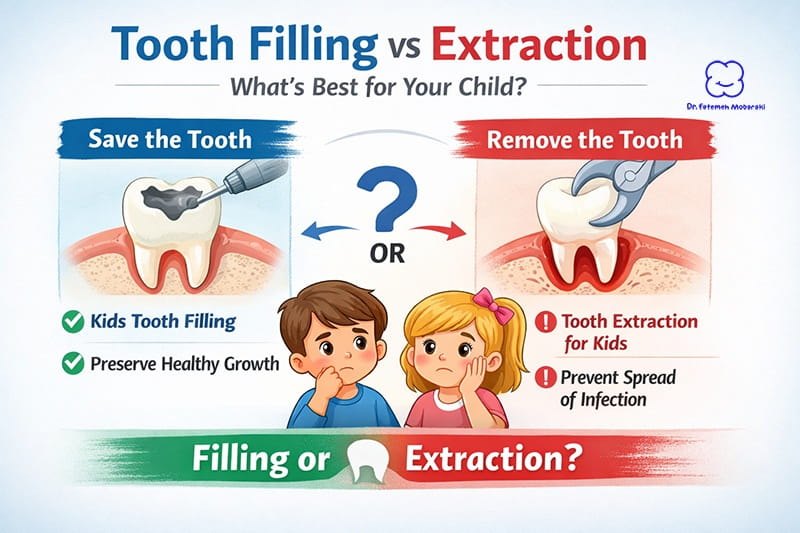Imagine this: It’s the middle of the night, and your child wakes up crying, holding their cheek in pain. As a parent, you feel helpless, wondering how to ease their discomfort until morning. Nighttime Toothaches in Children is a common concern among parents, and understanding the causes and remedies can help provide immediate comfort.
According to Dr. Fatemeh Mobaraki,
“Nighttime tooth pain is one of the most common complaints among children, and parents need to know how to provide immediate relief while also addressing the root cause of the problem.”
In this article, we’ll explore the common causes of tooth pain in children at night, immediate relief tips, effective home remedies, and when to seek professional dental care. If your child is experiencing frequent discomfort, it may be time to visit a pediatric dentist in Dubai to ensure their oral health is in top condition.
Common Causes of Nighttime Toothaches in Children
Tooth pain can intensify at night due to various reasons, including increased blood flow to the head while lying down. Here are some of the most common causes:
1. Cavities or Tooth Decay
Cavities can expose the sensitive inner layers of a tooth, leading to pain that worsens at night when distractions are minimal. Poor brushing habits and sugary foods contribute to decay, making nighttime pain a frequent complaint among kids.
🦷 Case Study: One of our young patients, 6-year-old Adam, frequently woke up crying due to severe tooth pain in children at night. His parents initially thought it was due to teething, but after a visit to our pediatric dentist in Mirdif, we discovered an early-stage cavity. A simple fluoride treatment and improved oral care routine helped Adam sleep pain-free!
2. New Teeth Coming In (Eruption Pain)
For younger children, teething pain or the eruption of molars can cause discomfort, especially in the early years. Emerging teeth put pressure on the gums, creating soreness that becomes more noticeable at night.
Read more: Parent’s Guide to Baby Teething
3. Sinus Infections or Congestion
Pressure from sinus infections can cause pain that feels like a toothache, particularly in the upper jaw. If your child has a cold, allergies, or sinus congestion, this may be the cause of their discomfort.
4. Teeth Grinding (Bruxism)
Children who grind their teeth at night may experience soreness and sensitivity due to enamel wear. Grinding in kids can also cause jaw pain, which may be misinterpreted as a toothache.
5. Food Stuck Between Teeth
Sometimes, leftover food particles between teeth can lead to irritation and discomfort, mimicking a toothache. Sticky foods like caramel, popcorn, and candy can get trapped, causing pain until removed.
Nighttime Toothaches in Children: Immediate Tips
If your child is in pain and a dentist is not immediately available, these quick remedies can help:
1. Apply a Cold Compress
Placing a cold pack or a cloth-wrapped ice pack on the cheek near the affected area for 15-20 minutes can reduce swelling and numb the pain. Repeat every 2-3 hours as needed.
2. Give a Child-Safe Pain Reliever
For severe pain, over-the-counter pain relievers such as acetaminophen or ibuprofen (in the correct dosage for your child’s age and weight) may help, but always consult with your child’s doctor before administering any medication. Avoid aspirin, as it is not safe for young children.
3. Rinse with Warm Salt Water
A saltwater rinse (½ teaspoon of salt in a glass of warm water) can help reduce bacteria, soothe inflamed gums, and provide relief. Have your child swish it gently and spit it out—do not swallow.
4. Use Clove Oil or Peppermint Tea Bags
Clove oil has natural numbing properties. Dab a small amount on a cotton ball and apply it to the affected area for 5-10 minutes. Similarly, a cooled peppermint tea bag placed on the sore area can provide soothing relief.
5. Elevate Their Head While Sleeping
Keeping your child’s head slightly elevated with an extra pillow can prevent blood from pooling in the head, which can worsen the pain. This is especially helpful if the pain is caused by sinus pressure.
6. Check for Food Stuck in Teeth
Use dental floss to gently remove any food particles that may be causing irritation. If needed, rinse their mouth with warm water to help dislodge debris.
7. Apply a Numbing Gel
Over-the-counter benzocaine gels (like Orajel) can provide temporary relief. Ensure it is child-safe and use as directed.
When to See a Dentist
While home remedies can provide temporary relief, some symptoms require professional attention. Consider scheduling a dental visit if:
- The pain lasts more than 24 hours
- There is swelling in the gums or face
- Your child has a fever
- There are signs of an abscess, such as pus or severe throbbing pain
- Your child has difficulty eating or drinking due to sensitivity
If any of these symptoms occur, your child may need a dental examination, treatment for cavities, or a professional cleaning to address the underlying issue. In cases where the pain is severe and accompanied by swelling or fever, seeking emergency dental care for children is essential to prevent complications.
Preventing Nighttime Toothaches in Children
Prevention is key to reducing the chances of your child experiencing tooth pain in children at night. Here are some essential tips:
✅ Maintain a good oral hygiene routine – Ensure your child brushes twice a day with fluoride toothpaste and flosses daily to prevent cavities.
✅ Limit sugary foods and drinks – Especially before bedtime, as sugar can contribute to decay.
✅ Encourage drinking water after meals – This helps wash away food particles and reduce acidity in the mouth.
✅ Regular dental check-ups – Routine visits every 6 months help catch and treat dental issues early.
✅ Consider a nightguard – If your child grinds their teeth, a dentist may recommend a custom nightguard to protect their teeth from wear.
✅ Ensure they are brushing properly – Many children brush too quickly or miss back teeth. Supervise their brushing until they develop good habits.
Conclusion
A nighttime toothache can be a stressful experience for both children and parents, but these immediate relief tips can help soothe your child’s pain until professional dental care is available. If your child frequently experiences toothaches at night, it may be a sign of an underlying issue that requires attention.
Frequently Asked Questions (FAQ)
1. Why do toothaches get worse at night?
Tooth pain often worsens at night because lying down increases blood flow to the head, putting more pressure on sensitive nerves.
2. Can a nighttime toothache go away on its own?
Temporary discomfort might improve, but if the pain persists, it’s best to see a pediatric dentist in Dubai to rule out decay or infection.
3. What can I do if my child has a severe toothache at night?
Try cold compresses, child-safe pain relievers, and saltwater rinses. If the pain is severe or swelling occurs, seek emergency dental care for children immediately.
If you’re looking for more expert-backed advice on children’s dental health, check out this comprehensive guide by the American Academy of Pediatric Dentistry on preventing and managing dental issues in kids.

